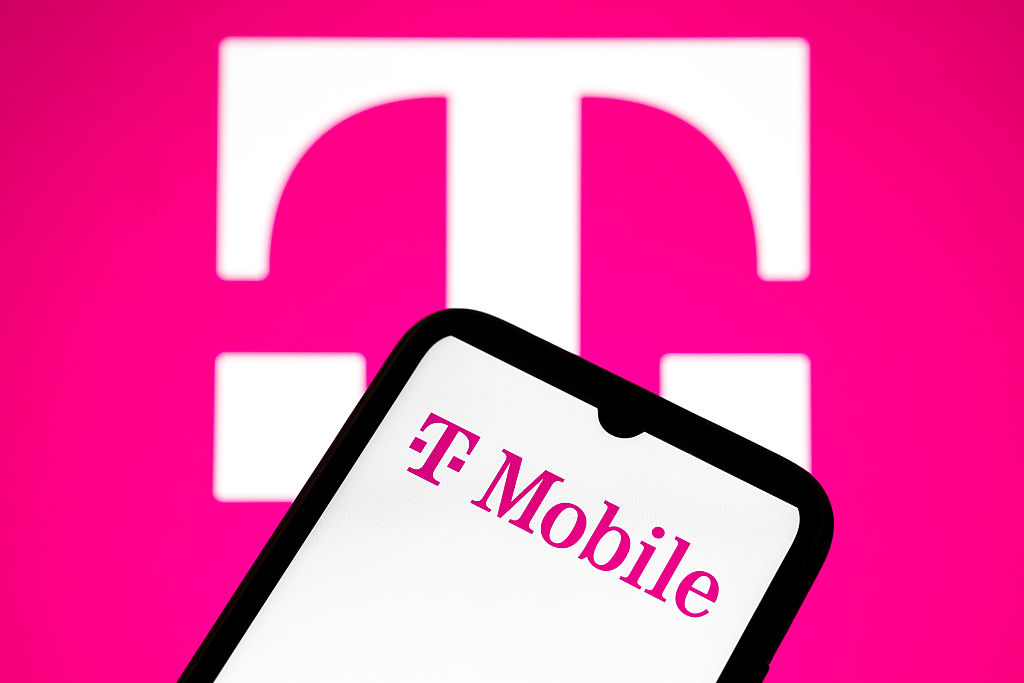5 Myths About Black Friday, Busted
Here’s what you really need to know about this big shopping day the Friday after Thanksgiving.

Profit and prosper with the best of Kiplinger's advice on investing, taxes, retirement, personal finance and much more. Delivered daily. Enter your email in the box and click Sign Me Up.
You are now subscribed
Your newsletter sign-up was successful
Want to add more newsletters?

Delivered daily
Kiplinger Today
Profit and prosper with the best of Kiplinger's advice on investing, taxes, retirement, personal finance and much more delivered daily. Smart money moves start here.

Sent five days a week
Kiplinger A Step Ahead
Get practical help to make better financial decisions in your everyday life, from spending to savings on top deals.

Delivered daily
Kiplinger Closing Bell
Get today's biggest financial and investing headlines delivered to your inbox every day the U.S. stock market is open.

Sent twice a week
Kiplinger Adviser Intel
Financial pros across the country share best practices and fresh tactics to preserve and grow your wealth.

Delivered weekly
Kiplinger Tax Tips
Trim your federal and state tax bills with practical tax-planning and tax-cutting strategies.

Sent twice a week
Kiplinger Retirement Tips
Your twice-a-week guide to planning and enjoying a financially secure and richly rewarding retirement

Sent bimonthly.
Kiplinger Adviser Angle
Insights for advisers, wealth managers and other financial professionals.

Sent twice a week
Kiplinger Investing Weekly
Your twice-a-week roundup of promising stocks, funds, companies and industries you should consider, ones you should avoid, and why.

Sent weekly for six weeks
Kiplinger Invest for Retirement
Your step-by-step six-part series on how to invest for retirement, from devising a successful strategy to exactly which investments to choose.
Most people assume the term "Black Friday" refers to retailers moving out of the red and into the black — that is, turning a profit for the year as shoppers flock to stores to do their holiday shopping on the day after Thanksgiving.
But, according to several accounts, the expression actually originated in the 1960s when Philadelphia police officers used it to describe heavy vehicle and pedestrian traffic the day after Thanksgiving. You just learned something new, right?
Well, that’s not the only misconception about Black Friday.
From just $107.88 $24.99 for Kiplinger Personal Finance
Become a smarter, better informed investor. Subscribe from just $107.88 $24.99, plus get up to 4 Special Issues

Sign up for Kiplinger’s Free Newsletters
Profit and prosper with the best of expert advice on investing, taxes, retirement, personal finance and more - straight to your e-mail.
Profit and prosper with the best of expert advice - straight to your e-mail.
Here are five myths you should be aware of — especially if you plan to be a part of the heavy traffic in the stores the day after Thanksgiving:
MYTH 1: Black Friday starts on Friday
Many major retailers start rolling out discounts and deals well ahead of Black Friday. For example, Amazon launched Amazon Prime Deal Days, the retailers pre-Black Friday sale, weeks before Thanksgiving. So don’t assume that you should wait until the last minute to score a bargain.
"Where Black Friday used to be the kickoff to the holiday shopping season, it’s now close to the finish line for many consumers who’ve started taking advantage of deals earlier in the season,” says smart shopping expert Trae Bodge of TrueTrae.com.
MYTH 2: Everything is on sale
Just because retailers have big sales doesn’t mean everything in their stores or on their sites is on sale. Yes, you’ll find everything from computers, tablets, cookware, video game consoles and televisions marked down. But that purse your wife wants, golf club set your husband wants or video game your son wants might not even be discounted.
For this reason, before shopping, check retailers’ Black Friday ads at sites such as DealNews.com to see what items will be on sale. We've listed both Walmart Black Friday deals and Costco Black Friday deals for you to easily shop as well.
MYTH 3: The deals are the best of the year
Don’t be fooled into thinking that all of the items that are on sale on or around Black Friday are at their lowest prices of the year. Many of the discounted Black Friday prices are also available during other sales throughout the year.
And often, Black Friday retailers will try to trick you by inflating discounts on items, even though these items occasionally sell below MSRP throughout the year, suggests Courtney Jespersen, NerdWallet.com’s consumer savings expert.
MYTH 4: Doorbuster deals are available only in stores
Black Friday (and now Thanksgiving) is synonymous with doorbusters — deeply discounted items that are in limited supply and available only at certain times, used as a means to lure shoppers out to the stores.
However, many retailers are beginning to prioritize online shopping, especially after shopping habits during the pandemic. In fact, many retailers offer online-only deals, and Amazon.com often matches the best offers at brick-and-mortar stores. So before you head out the door, check to see if the deals you want are available online.
MYTH 5: It will be easy to take advantage of price-match policies
Maybe your plan is to head to one store on Black Friday, use an app to scan product barcodes, see if another retailer is offering those items at lower prices, then take advantage of the price-match policy of the store you’re in to get those items there for even lower prices. It’s brilliant, right?
Not so fast. Several major retailers, including Walmart and Costco will not match competitors’ prices on items for sale on Black Friday and through the following Monday. Call retailers or look up their price-match policies on their websites before you shop.
Related Content
Profit and prosper with the best of Kiplinger's advice on investing, taxes, retirement, personal finance and much more. Delivered daily. Enter your email in the box and click Sign Me Up.

Award-winning journalist, speaker, family finance expert, and author of Mom and Dad, We Need to Talk.
Cameron Huddleston wrote the daily "Kip Tips" column for Kiplinger.com. She joined Kiplinger in 2001 after graduating from American University with an MA in economic journalism.
- Carla AyerseCommerce and Personal Finance Editor
- Erin BendigPersonal Finance Writer
-
 Farmers Brace for Another Rough Year
Farmers Brace for Another Rough YearThe Kiplinger Letter The agriculture sector has been plagued by low commodity prices and is facing an uncertain trade outlook.
-
 Nasdaq Leads a Rocky Risk-On Rally: Stock Market Today
Nasdaq Leads a Rocky Risk-On Rally: Stock Market TodayPresident Trump said he will decide within the next 10 days whether or not the U.S. will launch military strikes against Iran.
-
 Over 65? Here's What the New $6K Senior Tax Deduction Means for Medicare IRMAA
Over 65? Here's What the New $6K Senior Tax Deduction Means for Medicare IRMAATax Breaks A new tax deduction for people over age 65 has some thinking about Medicare premiums and MAGI strategy.
-
 Is Prepaid Wireless Making a Comeback — and Can It Lower Your Phone Bill?
Is Prepaid Wireless Making a Comeback — and Can It Lower Your Phone Bill?Once seen as a budget alternative, prepaid wireless is attracting new attention as networks improve and shoppers look for flexible, lower-cost options.
-
 Tariffs: An Uninvited Valentine's Day Guest
Tariffs: An Uninvited Valentine's Day GuestExpect to pay more for flowers and chocolates this year or find creative alternatives to save on Valentine's Day without looking cheap.
-
 How Much It Costs to Host a Super Bowl Party in 2026
How Much It Costs to Host a Super Bowl Party in 2026Hosting a Super Bowl party in 2026 could cost you. Here's a breakdown of food, drink and entertainment costs — plus ways to save.
-
 8 Things You Need to Stop Wasting Money on in 2026
8 Things You Need to Stop Wasting Money on in 2026Want to get your finances in shape this year? Start by cutting out these sneaky sources of waste in your budget.
-
 Samsung Galaxy S25 Ultra for $4.99 a Month: A Closer Look at Verizon’s Deal
Samsung Galaxy S25 Ultra for $4.99 a Month: A Closer Look at Verizon’s DealVerizon’s aggressive pricing makes Samsung’s top-tier phone tempting, but the real cost depends on your plan and how long you stay.
-
 Are T-Mobile's Prepaid Perks a Home Run or a Strikeout?
Are T-Mobile's Prepaid Perks a Home Run or a Strikeout?T-Mobile's prepaid lineup promises MLB.TV, T-Mobile Tuesdays and hotspot data. But do the perks make it worth switching?
-
 23 Last-Minute Gifts That Still Arrive Before Christmas
23 Last-Minute Gifts That Still Arrive Before ChristmasScrambling to cross those last few names off your list? Here are 23 last-minute gifts that you can still get in time for Christmas.
-
 Verizon’s 4-Line Phone Promo Offers Strong Value for Families Upgrading to Premium Devices
Verizon’s 4-Line Phone Promo Offers Strong Value for Families Upgrading to Premium DevicesFamilies can upgrade to top-tier smartphones for $25 a line with Verizon’s newest offer.